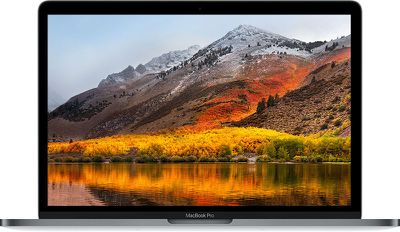macOS High Sierra 10.13.4 Displays Warnings When Opening 32-Bit Apps as Part of Apple's Phase Out Plan
Starting with macOS High Sierra 10.13.4, Apple is commencing with its plan to begin phasing out 32-bit apps on Macs. Apple has promised that macOS High Sierra will be the "last macOS release to support 32-bit apps without compromises."
After installing macOS High Sierra 10.13.4, which is now available in a beta testing capacity, when you open up an app that's a 32-bit app, you'll get a warning about its future incompatibility with the macOS operating system.

This is the first of many warnings Apple plans to provide as it works to put an end to 32-bit Mac apps, and this initial warning will only be shown one time for each app.
Apple's efforts to phase out 32-bit apps on Macs mirror the path it took when ending 32-bit app support on iOS devices. In iOS 10, Apple provided increasingly more insistent warnings to let users know that their apps wouldn't work with future versions of iOS before phasing out 32-bit support entirely in iOS 11.
As of January 2018, all new apps submitted to the Mac App Store must be 64-bit, and all apps and app updates submitted must be 64-bit by June of 2018. The next version of macOS after High Sierra will include "aggressive" warnings about 32-bit apps before they are phased out entirely.
Once 32-bit apps are phased out on Macs, they won't be able to be used at all, so users will need to find replacements for older 32-bit apps that aren't likely to be updated to 64-bit.
Popular Stories
Apple will launch its new iPhone 17 series in two months, and the iPhone 17 Pro models are expected to get a new design for the rear casing and the camera area. But more significant changes to the lineup are not expected until next year, when the iPhone 18 models arrive.
If you're thinking of trading in your iPhone for this year's latest, consider the following features rumored to be coming...
In select U.S. states, residents can add their driver's license or state ID to the Wallet app on the iPhone and Apple Watch, providing a convenient and contactless way to display proof of identity or age at select airports and businesses, and in select apps.
Unfortunately, this feature continues to roll out very slowly since it was announced in 2021, with only nine U.S. states, Puerto Rico,...
Apple does not plan to refresh any Macs with updated M5 chips in 2025, according to Bloomberg's Mark Gurman. Updated MacBook Air and MacBook Pro models are now planned for the first half of 2026.
Gurman previously said that Apple would debut the M5 MacBook Pro models in late 2025, but his newest report suggests that Apple is "considering" pushing them back to 2026. Apple is now said to be...
Three out of four iPhone 17 models will feature more RAM than the equivalent iPhone 16 models, according to a new leak that aligns with previous rumors.
The all-new iPhone 17 Air, the iPhone 17 Pro, and the iPhone 17 Pro Max will each be equipped with 12GB of RAM, according to Fixed Focus Digital, an account with more than two million followers on Chinese social media platform Weibo. The...
Since the iPhone X in 2017, all of Apple's highest-end iPhone models have featured either stainless steel or titanium frames, but it has now been rumored that this design decision will be coming to an end with the iPhone 17 Pro models later this year.
In a post on Chinese social media platform Weibo today, the account Instant Digital said that the iPhone 17 Pro models will have an aluminum...
A new Apple TV is expected to be released later this year, and a handful of new features and changes have been rumored for the device.
Below, we recap what to expect from the next Apple TV, according to rumors.
Rumors
Faster Wi-Fi Support
The next Apple TV will be equipped with Apple's own combined Wi-Fi and Bluetooth chip, according to Bloomberg's Mark Gurman. He said the chip supports ...
Production of foldable OLED displays for Apple's first foldable iPhone have begun ahead of its expected launch next year, Korea's ETNews reports.
The first foldable iPhone's displays are being produced by Samsung Display, who are establishing a production line dedicated to the upcoming Apple device its A3 factory in Asan, Chungcheongnam-do. The production line will make displays exclusively...
iPhone 17 Pro and iPhone 17 Pro Max models with displays made by BOE will be sold exclusively in China, according to a new report.
Last week, it emerged that Chinese display manufacturer BOE was aggressively ramping up its OLED production capacity for future iPhone models as part of a plan to recapture a major role in Apple's supply chain.
Now, tech news aggregator Jukan Choi reports...




















